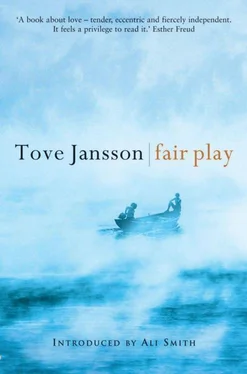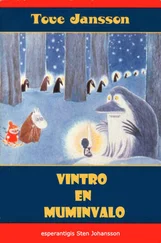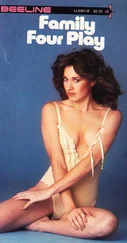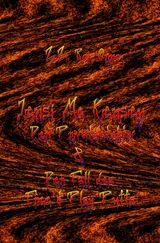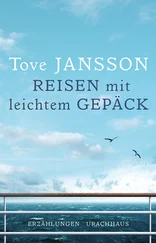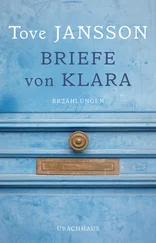Among the socks, underwear, photographs, diverse belongings of all sorts, there were innumerable small packages, each wrapped in cotton wool held together with rubber bands.
“Look,” he said. “My hands. You must learn while there is still time. Handling my faces could have taught you much, but these too can help you see that the simple line is utterly ignorant of the sculptural. Take away the cups, take everything off the table, clean it off. Your tea is far too weak.”
Hand after hand was unpacked and laid before her, and she studied them in silence.
They were unbelievably beautiful. Shy hands, greedy hands, reluctant, pleading, forgiving, wrathful, tender hands. She lifted them, one after another.
It was already rather late at night. At last Mari said, “Yes, I understand.” She paused briefly and went on. “Everything is here. Including pity. Wladyslaw, may I ask you a question? There on the train, on your long trip, didn’t you feel at all sorry for all those hands and faces that you call raw material?”
“No,” Wladyslaw said. “I no longer have time. I have already told you. I know them. I have forgotten my own face. I have already used it.”
Mari went and turned off the tea water. “And?” she said.
“I must continue, filled only with my knowledge, my insight. But I have not yet been able to use the face of death, not well enough. He is too palpable. Or is it a she? In any case, a challenge that fascinates me. And what do you know of death? What do you think about it? Have you ever even experienced a great loss?”
“Wladyslaw,” Mari said, “do you realize that it’s three o’clock in the morning?”
“It doesn’t matter. One must use the nights. My friend, I sense that you have not thought much about the face of death. And do you know why? Because you do not live with all your strength, all the time, in your own triumph dashing ahead of time, anticipating it and disdaining it. I am awake, always. Even in my brief dreams I continue to work, constantly. Nothing must be lost.”
“Yes, Wladyslaw, yes,” Mari said. She was very tired. From the depths of her exhaustion, where she no longer had the strength to follow what he was saying, she remarked that he had undoubtedly been very beautiful.
He answered gravely. “Very. I was so beautiful that people stopped on the street and turned around to look at me and I heard them say, ‘It’s not possible!’”
“That must have made you very happy.”
“Yes. I liked it. I couldn’t help it. But of course all of that took time from my work. I allowed feeling to dominate at the expense of observation. Much too often.” Wladyslaw was silent for quite a while. Then he said, “Now perhaps we might have a meal to complete the day. You said something about beef?”
At four o’clock, the morning paper came through the letter slot.
“Are you tired?” Wladyslaw asked.
“Yes.”
“Then I won’t say much more. Just one thing — and now, my friend, you must give me your complete attention. It is simply this: do not tire, never lose interest, never grow indifferent — lose your invaluable curiosity and you let yourself die. It’s as simple as that. No?”
Mari looked at him. She smiled without answering.
Wladyslaw took her hands in his. He said, “We have only two weeks. That will give us a poor fraction of all we have to talk about, all we must talk about. But do not be distressed; we will use the nights. Now you should sleep. Do not be surprised if I am gone when you wake up; I’ll just be out for my morning walk. The city looks very provincial, but it does lie by the sea. When do the flower shops open?”
“Nine o’clock,” said Mari. “And I’ve grown very fond of red.”
“IS IT YOUR GLASSES?” said Jonna without looking up from her work. After a while she said, “Have you looked in all your pockets? The last place I saw them was in the bathroom.”
Mari said nothing. Her steps went from the studio to the library and back again, to the bedroom, to the front hall.
“Tell me what you’re looking for.”
“Oh, some papers. A letter. It’s not important.”
Jonna stood up, went into the library, and looked under the table. There lay several sheets of blue paper covered with writing.
“She writes on both sides and doesn’t number her pages,” Mari explained. “Do you have time to talk?”
“No,” said Jonna amiably.
Mari gathered up the papers.
“Okay, what does she want?” Jonna went on. “A brief summary.”
“She wants to know what’s the meaning of life,” Mari said. “And she’s in a hurry, she says.”
Jonna sat down and waited.
“She thinks I have life experience, like you’re supposed to have when you’re old. What should I say?”
“Well, how old is she herself, this person?”
“She’s not old — barely fifty.”
“Poor Mari,” said Jonna. “Say you don’t know.”
“I can’t. And I can’t say work is the most important thing because she doesn’t like her job.”
“What’s her name?”
“Linnea.”
“How about simply love?”
“Won’t do! She’s completely alone; no one loves her.”
“And there’s no one she cares about? No one to take care of?”
“Not that I know of.”
“Does she read? Is she interested in world events?”
“I don’t think so. Now you’re going to ask if she has a hobby, but she doesn’t. And she’s not religious.”
“This happens all the time,” said Jonna. “Again and again. Now, once and for all, try to write down the meaning of life and then take a photocopy so you can use it again next time. I’m sorry, but I’m afraid you’re going to have to deal with your Linnea by yourself.”
“Oh, that’s just wonderful!” Mari exclaimed. “Thank you very much. It’s all very well and good for you. What do you care about the meaning of life? You don’t have to explain it and don’t get hard letters from people you’ve never met, and of course won’t ever have to meet. And you’ve got someone else to compose your thank-you letters and sympathy notes and politely decline all the invitations you don’t care for. Marvellous!”
Jonna stood with her back to Mari, looking out the window. “Of course. You’re right. But come here a minute. The harbour is lovely in the fog.”
The harbour really was lovely. Black channels cut through the ice all the way to the distant quays where the big ships lay barely visible.
“So terribly lonely,” Mari said. “But Jonna, try to help me here. Could I write to her about experiencing very simple things…”
“Like what?”
“Well, for example, that spring is coming? Or just buying pretty fruit and arranging it in a bowl… Or a great, stately thunderstorm moving closer…”
“I don’t believe your Linnea likes thunderstorms,” Jonna said. And at that instant a skyrocket rose silently into the air far off across the harbour. The winter sky began to burst with repeated explosions of colour that paused for a few seconds in their beauty before sinking slowly and giving way to new multi-coloured roses, a lavish splendour repeated again and again, softened by the fog and for that reason more mysterious.
Jonna said, “I’ll bet it’s some foreign cruise ship entertaining its passengers. My, they’re far away. Now a white one… That’s really the prettiest because it makes the harbour look so black.”
They waited, but nothing more happened.
“I think I’ll go and work a little more,” Jonna said. “Don’t look so worried. Maybe your Linnea saw the same fireworks and it cheered her up.”
“Not her! She looks out on a dismal courtyard, because her neighbour got the whole view of the harbour…”
Читать дальше
